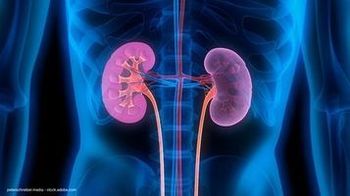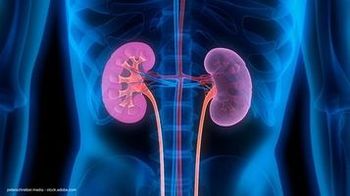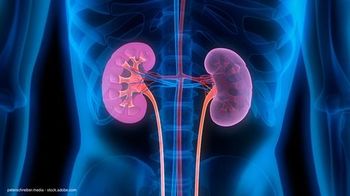
Injectable enzyme appears effective in treating Peyronie's disease
An investigational injectable enzyme known as AA4500 appears to be effective and generally well tolerated in treating patients with Peyronie's disease, according to data from two phase II open-label trials presented at the recent AUA Western Section annual meeting in Maui, HI.
An investigational injectable enzyme known as AA4500 appears to be effective and generally well tolerated in treating patients with Peyronie’s disease, according to data from two phase II open-label trials presented at the recent AUA Western Section annual meeting in Maui, HI.
In these studies, treatment with AA4500 (a three-treatment series of three injections each) resulted in 89% of patients achieving clinical success, which was defined as change from baseline in deviation angle of at least 25%. This improvement was maintained through the end of the study follow-up period at 9 months.
“The drug not only reduced penile curvature but also eliminated pain on erection and increased sexual enjoyment and satisfaction,” said lead investigator Gerald Jordan, MD, of the Eastern Virginia Medical School, Norfolk. “As a result, physicians may be one step closer to being able to set a new expectation for the future treatment of this condition.”
In one study, three injections, each administered on a separate day, were given over 7 to 10 days. Patients received a second series of three injections 12 weeks later and were evaluated at 3, 6, and 9 months after the last injection. At months 3 and 6, 58% and 53% of patients, respectively, achieved clinical success with respect to deviation angle.
In the second study, patients received three injections administered once per day, separated by at least 1 day each, over a 1-week timeframe. Patients received two additional series of three injections, each spaced 6 weeks apart. At 9-month follow-up, 25% or greater reduction in deviation angle was achieved in eight of nine patients who completed the study. Based on the researchers’ global assessment, 67% of subjects were very much improved or much improved after treatment.
Newsletter
Stay current with the latest urology news and practice-changing insights — sign up now for the essential updates every urologist needs.





